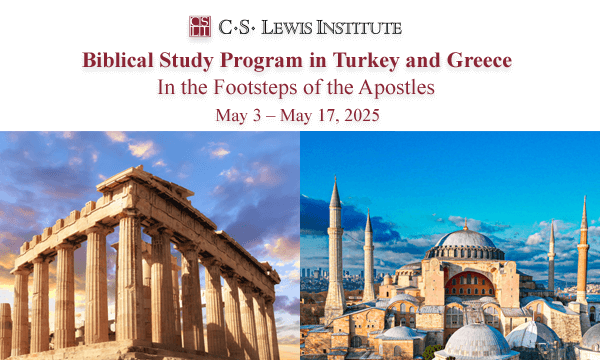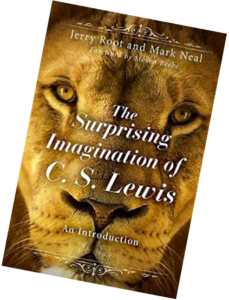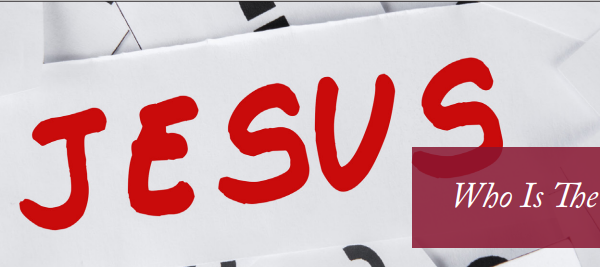Back to series


Recommended Reading:

Download or Listen to Audio
The Surprising Imagination of C.S. Lewis
Click here to open a Print - Friendly PDF
C. S. Lewis possessed a fascinating perception of the imagination. Because it was a world he inhabited so frequently, his understanding of it was not limited to a single definition but was distinguished as finely graded parts of a whole. This enabled him to wield one of his greatest powers as an author: using imaginative depiction to enable readers to see a particular thing or truth more clearly. This nuanced understanding has important implications not only for deepening our understanding of Lewis, but for how we use or abuse our own imaginations in matters of life and faith.
In his autobiography Surprised by Joy, Lewis outlines three distinctions of the imagination. First, he describes wish fulfillment, which he also calls reverie or daydream. This is often an unhealthy use of the imagination; it is self-referential and positions the self as the center of the universe and hero of the story. We can easily relate to this. Our daydreams of wealth, power, sex, heroism, and fame are rooted squarely in this type of imaginative fantasy. If we’re honest, we employ this function of the imagination on a daily basis, often without awareness.
The second distinction is invention, at which Lewis was so proficient—the power of depiction, of clarifying one’s vision. It enables us to see the world as it is, not as we wish it to be. The benefit here is an enlargement of our being, of seeing the truth of something more deeply through a skillfully composed image or a well-told story.
 The third distinction of imagination describes the perception of realities beyond us. This includes experiences of what Lewis calls joy. He writes that of the three categories of imagination, this is the highest, even the only, distinction that truly matters. This joy is concomitant with sehnsucht, a deeply emotional German word denoting an ardent and unfulfilled longing. The end of this imaginative joy is to orient our longings toward a true object, One who will fulfill these longings at the appointed time.
The third distinction of imagination describes the perception of realities beyond us. This includes experiences of what Lewis calls joy. He writes that of the three categories of imagination, this is the highest, even the only, distinction that truly matters. This joy is concomitant with sehnsucht, a deeply emotional German word denoting an ardent and unfulfilled longing. The end of this imaginative joy is to orient our longings toward a true object, One who will fulfill these longings at the appointed time.
Though Lewis writes extensively about his experiences of joy—the highest attainment of the imagination—his power as a writer is centered in the second distinction of imagination: depiction. For readers this ability to craft images and story contributes to an enhanced clarity and understanding of the world. Lewis writes elsewhere that “reason is the natural organ of truth; but imagination is the organ of meaning.”1 Stories and imaginative depictions bring truths to life out of the dry-as-dust regions in which reason often strands us. This does not mean we should denigrate the truths of reason; rather, we should recognize that the imagination gives us an additional bearing on reality.
However, the imagination as truth-bearer is often misunderstood. We relegate its function and primary use to that of childhood or to the strictly imaginary (which we might equate with falsity), thereby debasing it of any meaning or significance. We rarely understand that our imaginations are a vital source of meaning. The American poet and author Wendell Berry corrects this misapprehension:
Worst of all, the fundamentalists of both science and religion do not adequately understand or respect imagination. Is imagination merely a talent, such as a good singing voice, the ability to “make things up” or “think things up” or “get ideas”? Or is it, like science, a way of knowing things that can be known in no other way? We have much reason to think that it is a way of knowing things not otherwise knowable. As the word itself suggests, it is the power to make us see, and to see, moreover, things that without it would be unseeable. In one of its aspects it is the power by which we sympathize. By its means we may see what it was to be Odysseus or Penelope, David or Ruth, or what it is to be one’s neighbor or one’s enemy. By it, we may “see ourselves as others see us.” It is also the power by which we see the place, the predicament, or the story we are in.2
Reason provides only half the story. Imagination makes up the difference. It enables us to see not only the manifest reality of the world around us, but the greater story in which we are participants: the story that is being told for all time, past, present, and future. And this ability to perceive the story we are in is critical in matters of faith.
Imaginative Faith: The Assurance of Things Not Seen
When we exercise faith, what else do we use but our imaginations? We wrap words around things in the world to define them and gain greater clarity. The word definition means “of the finite.” Thus, we use our reason to understand the particulars of our world. But God is infinite; He breaks the category of definition. We can’t wrap words around Him, and our reason collapses in attempting to apprehend Him. To understand God at all, we must speak by what the medieval scholastics called the way of analogy. Jesus Himself spoke about the kingdom of heaven only in parables or similes. That is, He used depictions of the imagination that would allow us to grasp, in human terms, a dim idea of God’s attributes.
Thus Jesus says that the kingdom of heaven is like a man who sowed good seed. Like yeast. Like treasure hidden in a field. Like a merchant looking for fine pearls. Each of these is a depiction of a thing from human experience using an analogy that allows us to apply our imaginative grasp of that thing to God.
We see, when we see at all, only through a glass darkly. Scripture informs us that faith is the assurance of things not seen; that is, things that cannot be discovered through discursive reasoning. The imagination helps us maintain and grow this tenuous position. It enables us to speak of heaven and of sehnsucht, of all that we yearn for that cannot be fulfilled on earth. So we need a greater understanding of and respect for the imagination and how it can provide truth about reality in ways that our reason alone cannot.
Lewis spent the early years of his life attempting to reconcile the divided parts of his mind. How could imagination ever be a source of truth comparable with reason? He loved and valued imagination, but his materialistic worldview wouldn’t allow him to believe it was anything more than make-believe. He wrote a poem, titled “Reason,” about this essential division in his mind. In the poem he asks this question:
Who [will] make imagination’s dim exploring touch
Ever report the same as intellectual sight?3
I believe this split is present in the minds of many followers of Christ today, a division that simply does not give credence to imagination as a primary factor in how we understand and approach God. We are in fact using it, but our ignorance of its role and its functions and our facile understanding of it, as a childish appurtenance that we have long outgrown, causes us to reject and devalue it. We therefore need a more robust conception of how the imagination functions.
Nuanced Imagination: The Key to Deeper Clarity and Truth
 Lewis understood imagination to be highly nuanced. In fact, he identified more than thirty of these nuances.
Lewis understood imagination to be highly nuanced. In fact, he identified more than thirty of these nuances.
For example, Lewis writes of the penetrating imagination that seeks to get at the truth of a thing by looking at it from many different angles. He cites Shakespeare as the great master of the penetrating imagination, often giving numerous metaphors to describe one thing. This allows us to go deeper and expand our understanding.
Primary imagination helps us to make sense of the data supplied by our five senses. Material imagination attempts to depict accurately the material world through vivid description. Realizing that imagination enables us to grasp the complexities of the world and to understand them in matters of truth, we can have a sure, but not a last, word. We can always delve more deeply, apply our understanding more widely, and see it in coherent relation to other truths.
Not every nuance of the imagination is a positive one. Lewis describes the transforming imagination that engages in idealized projection, placing inflated expectations onto the objects of its affection. Similarly, the generous imagination embellishes a thing beyond what it deserves. It is the blind estimation of an idea that can result in groupthink and inner-circle mentality.
To gain more clarity about how Lewis gave overlaid the imagination with nuances, let’s examine one positive and one negative use.
Satisfied Imagination: The Charged World
The satisfied imagination is a nuance that discovers delight in the familiar and in the repetition of the mundane. Lewis writes that the medieval scholastics were the great masters of the satisfied imagination. They created a cosmology of unbelievable complexity. Their model of the universe was not only systematic but also incredibly repetitious, almost mind-bogglingly so. And they reveled in this extensive reiteration.
The model divided the heavens from the earth. All in the realms of the heavens was perfect and ordered, immutable and noncontingent. On earth everything was subject to change and decay and randomness. The medievals delighted in their model because it depicted the heavens as the realm of perfect order that we on earth should attempt to emulate. Contemplation of this order and harmony returns our minds to the source of order and harmony, that is, to God.
And perfect order is simply perfect repetition: each thing fulfilling its nature as it was created. The sun rises each day. The stars appear each night. Each created object fulfills its nature again and again. Only humans have the ability to live at random and to interrupt the pattern.
This ordered repetition of the familiar, Lewis writes, is also where we begin to understand that God is the ground and supplier of both our personal and material reality. All things have their source in God’s sustaining and creative power. Once we embrace this concept, all reality becomes a conduit by which we can apprehend God.4
Through this realization, we must learn what it means to reenchant the familiar, to see the world around us anew. G.K Chesterton writes,
Now, there is a law written in the darkest of the Books of Life and it is this: If you look at a thing nine hundred and ninety-nine times, you are perfectly safe; if you look at it the thousandth time, you are in frightful danger of seeing it for the first time.
5How can we do this? Lewis notes that any pleasures we experience are “shafts of the glory as it strikes our sensibility.”6 God breaks into our lives through the simplest things: a dog’s smooth fur or the way new leaves appear as green mist on springtime trees. We apprehend God through our pleasures, but we often aren’t aware of it.
As long as familiarity breeds contempt, we will fail. If we are to properly use the satisfied imagination, Lewis notes, we must overcome four obstacles. First is inattention; we are simply not aware enough. The second is the wrong kind of attention. We could imagine that our pleasure in the mundane is simply internal and personal, that its source is not divine. Third is greed; we want the experience again and again. And the fourth is pride, believing that we have been supplied with a secret knowledge denied to others.
7The satisfied imagination acts as a corrective to the “grass is greener” mentality that prompts us to always seek the next thing or the new vista. “The world is charged with the grandeur of God,”8 writes poet Gerard Manley Hopkins. Most of the time we are essentially asleep, and we cannot see past the mundane. We must come awake and stay awake if we are to fully use the satisfied imagination and experience Chesterton’s thousandth look.
Controlled Imagination: Virtue as Fantasy
The controlled imagination is a negative use. It projects self-seeking desires onto others to gain ascendency over them. It is akin to the distinction of imagination that Lewis labels wish fulfillment. The self becomes the center of the universe. The controlled imagination can also be what Lewis calls servile. Contrast this with the free activity in which the self is not central to the thing imagined. The servile activity fuels the controlled imagination with images and wish fulfillment dreams that keep us imprisoned within a fantasy world. George Macdonald writes that “the one principle of hell is—I am my own.”9 Perhaps Lewis’s best example of the embodiment of the controlled imagination is in The Screwtape Letters, a fictional work in which a junior devil attempting to guide a human soul to hell is advised by his uncle about the best tactics to use to accomplish this diabolical work.
 The most fatal aspect of the controlled imagination is its propensity to encourage a willful ignorance of our inner life: all the motives and machinations that seethe below the surface of our minds and souls. Conversely, the most powerful antidote is our being intentionally aware, turning our gaze inward and practicing self-examination. Lewis writes, “All reality is iconoclastic.”10 It is constantly breaking in on us and shattering the images and idols we make of it. This beneficial iconoclasm offers us a vision of the world as it is, not as we would create it. We must cultivate the free activity of the imagination in a way commensurate with reality and without self at the center.
The most fatal aspect of the controlled imagination is its propensity to encourage a willful ignorance of our inner life: all the motives and machinations that seethe below the surface of our minds and souls. Conversely, the most powerful antidote is our being intentionally aware, turning our gaze inward and practicing self-examination. Lewis writes, “All reality is iconoclastic.”10 It is constantly breaking in on us and shattering the images and idols we make of it. This beneficial iconoclasm offers us a vision of the world as it is, not as we would create it. We must cultivate the free activity of the imagination in a way commensurate with reality and without self at the center.
Seeing With Others’ Eyes: The Imagination as Reconciliation
Finally, how do we use our imaginations for the glory of God? Most uses of the imagination are ultimately reconciling. They enable us to reconcile ourselves to a larger world, to see that world accurately, even with its sorrows and failures, for what it is rather than what we want it to be. They provide us with hope and idealism without illusion. They enable us to see that “we may ignore, but we can nowhere evade, the presence of God. The world is crowded with Him. He walks everywhere incognito. And the incognito is not always hard to penetrate. The real labour is to remember, to attend. In fact, to come awake. Still more, to remain awake.”11 As we give nuance to our own imaginations, they give us bearings on our idea of God, what Lewis terms the “Bright Blur,” consequently enriching our lives and deepening our understanding.
At the end of Experiment in Criticism, Lewis writes that his own eyes are not enough for him. He would see what others have seen. Even that is not enough. He would see what they have imagined. Even more, he regrets that the beasts cannot write books that would allow him to see how the world appears to the eye of a bee or mouse or how it comes charged to the olfactory sense of a dog.12 We live, as it were, in a narrow prison of self. We desperately need those other eyes to see the world rightly and to continue to expand our understanding. God calls us to live in and know this world well. We best glorify Him when we are most fully ourselves, that is, when we are most like Him and most clearly seeing His creation. The rightly used imagination helps us get there.
|
Notes: |
|||

Mark Neal
AuthorMark Neal, is the co-author of The Surprising Imagination of C.S. Lewis: An Introduction. He has published numerous other articles, interviews on C.S. Lewis, and contributed chapters to books. He lectures both nationally and internationally. Currently the VP of digital marketing for a firm located outside of Chicago, he works with higher education, nonprofits, business and publishing. He has lectured and published on marketing, advertising and social media strategy. Mark is a graduate of Wheaton College and earned his Master’s degree in education from National Louis University. Connect with Mark at www.markneal.org.

Recommended Reading:
Jerry Root and Mark Neal, The Surprising Imagination of C.S. Lewis: An Introduction (Abingdon Press, 2015)
The purpose of this book is to introduce C.S. Lewis through the prism of imagination. For Lewis, imagination is both a means and an end. And because he used his own imagination well and often, he is a practiced guide for those of us who desire to reach beyond our grasp. Each chapter highlights Lewis’s major works and then shows how Lewis uses imagination to captivate readers.
 COPYRIGHT: This publication is published by C.S. Lewis Institute; 8001 Braddock Road, Suite 301; Springfield, VA 22151. Portions of the publication may be reproduced for noncommercial, local church or ministry use without prior permission. Electronic copies of the PDF files may be duplicated and transmitted via e-mail for personal and church use. Articles may not be modified without prior written permission of the Institute. For questions, contact the Institute: 703.914.5602 or email us.
COPYRIGHT: This publication is published by C.S. Lewis Institute; 8001 Braddock Road, Suite 301; Springfield, VA 22151. Portions of the publication may be reproduced for noncommercial, local church or ministry use without prior permission. Electronic copies of the PDF files may be duplicated and transmitted via e-mail for personal and church use. Articles may not be modified without prior written permission of the Institute. For questions, contact the Institute: 703.914.5602 or email us.
-
Recent Podcasts
Resisting God – Dr. John W. Taylor’s Story
by Jana Harmon, John Taylor on April 11, 2025Dr. John Taylor, a former atheist, once ardently...Read More
-
The Defiance of Grace in the Ministry of Christ
by Dane Ortlund, Aimee Riegert on April 4, 2025
-
Living in Wonder – Rod Dreher’s Story
by Rod Dreher, Jana Harmon on March 28, 2025
-
Recent Publications
Who Is The Real Jesus?
by John R.W. Stott on April 1, 2025The 21st century has provoked many conversations and...Read More
-
Does the Modern World Face a Crisis of Meaning?
by Cameron McAllister on March 1, 2025
-
The Impact of Technology on the Christian Life
by Tony Reinke on February 14, 2025
0
All Booked
0.00
All Booked
0.00
All Booked
18008
GLOBAL EVENT: 2025 Turkey & Greece Study Program – In the Footsteps of the Apostles
https://www.cslewisinstitute.org/?event=global-event-2023-biblical-study-program-of-israel&event_date=2025-05-03®=1
https://www.paypal.com/cgi-bin/webscr
2025-05-03

Next coming event
Days
Hours
Minutes
Seconds
GLOBAL EVENT: 2025 Turkey & Greece Study Program – In the Footsteps of the Apostles
On May 3, 2025 at 3:00 pmat İstanbul, TürkiyeSpeakers

Mark Neal
Author
Team Members

Mark Neal
AuthorMark Neal, is the co-author of The Surprising Imagination of C.S. Lewis: An Introduction. He has published numerous other articles, interviews on C.S. Lewis, and contributed chapters to books. He lectures both nationally and internationally. Currently the VP of digital marketing for a firm located outside of Chicago, he works with higher education, nonprofits, business and publishing. He has lectured and published on marketing, advertising and social media strategy. Mark is a graduate of Wheaton College and earned his Master’s degree in education from National Louis University. Connect with Mark at www.markneal.org.






